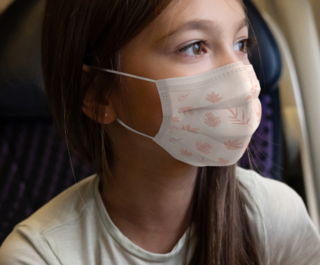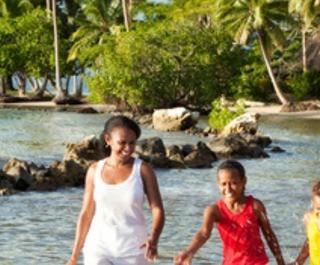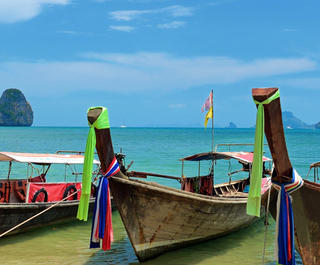
If you are worried about flying long haul with children, we have interviewed a number of Flight Centre parents and summarised their experience into three areas of sure fire tips to help make your trip go smoothly. These tips are focused on flying but the central principles apply to any form of long distance travel with kids.
In this first part, we go over the three areas which cover getting you ready to go, because it is all about the preparation.
1. How to prepare for a long haul flight for you and your kids?
2. What to check with the airlines before you go?
3. General packing tips for you and the kids - What to pack in your hand luggage?
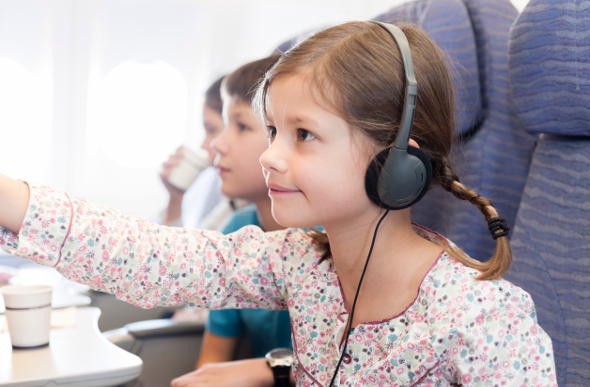 Get your little ones ready for a long-haul flight (Image: Getty)
Get your little ones ready for a long-haul flight (Image: Getty)
1. How to prepare for a long haul flight for you and your kids
The best bit of preparation for kids, is the mental preparation, so talk to your children about what will happen on the trip. Try to explain step-by-step as to what will happen at the airport and on the plane.
If they are old enough explain to your kids about how they should behave at the airport and on the plane, and importantly, why.
Also explain the about security zones and that there are some places in airports and on planes where you are not allowed to go for safety reasons. Most kids are used to the concept of no-go areas.
Prepare yourself to be the walking encyclopedia about all things to do with air travel. From why is the sky blue to what are the strange noises during take-off, there are many questions that are bound to cross young enquiring minds.
Knowing a bit of technical detail is also helpful especially if your children are a little anxious about flying.
Give your child the opportunity to feel grown up by including them in the planning of what to bring in their hand luggage. Just make sure you do a thorough check what’s in their bags before you go.
Lots of preparation cannot prevent all meltdowns and misbehaving, but just like adults knowing what to expect will make it easier for them and for you.
2. What to check with the airlines before you go?
When you book your trip ensure that you ask the airline to seat your family together, even if there is an aisle between some of you. For flights of more than a couple of hours, also check if there are kids' meals available on board, and a general idea of what is included in the kids’ meals.
Ensuring that you can maximise your child’s sleeping is a must. Usually children under two years fly free if they sit on your lap. It is highly advisable that if you're travelling on a long flight to reserve a bassinet or cot when booking your tickets.
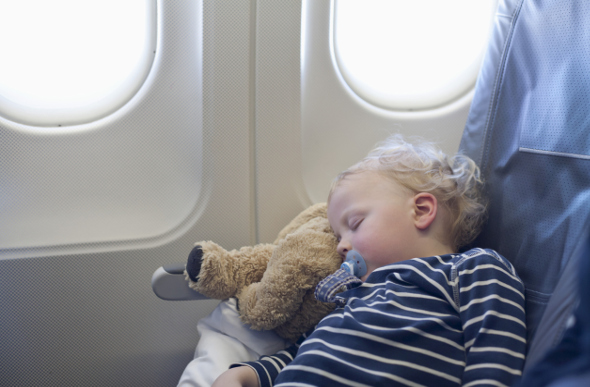 Ensuring you have maximised sleeping probability is a must (Image: Getty)
Ensuring you have maximised sleeping probability is a must (Image: Getty)
3. General kid packing tips
Keep all credit cards, money, tickets and passports on your person, in one type of bag that is secure but has easy access.
If there are two adults on the trip, share the load by dividing up snacks/toys/clean clothes/nappies etc.
What to pack in your hand luggage:
- Anti-bacterial hand wipes and gels.
- Snacks that are easy to pack and not overly sloppy are a good option – some of them can even be nutritious!
- Toys and books. Choose medium sized and not too heavy items.
- Bribes. These are the last resort to be used after all else has failed. Bring something you know is an absolute favourite and use it only when you really need it. The bribes can include iPad or electronic games devices.
- Some sort of sippy or kid friendly cup is a must. Pouring the served drinks into these has prevented and will prevent a whole range of large and small spillages.
- Nappies and wipes. Even if you typically don’t use pull-ups for your child, consider bringing some on the airplane. Pull-ups are definitely a lot easier to handle in tiny airplane toilets.
- Baby food, baby bottles and formula. You are allowed to bring made formula for your child, even with the current aircraft restrictions with liquids on board. Note that an option may be to just bring the formula powder and mix on board, which saves on bulk in your hand luggage.
- A change of clothes in case of spillages or toilet accidents.
- Comfort items. Air travel can be stressful for kids, so having their favourite “blankey” or soft toy can be just the ticket if they are feeling a little overwhelmed.
Onboard medications
To comply with current airline regulations, all medical items should be in a clear plastic bag and none of the bottles can contain more than 100 ml (3oz.) of liquid.
Useful items to bring are:
- Both a nasal spray and a liquid decongestant for children.
- An anti-nausea medication for upset stomachs.
- Fever and pain relief. Kids’ Paracetamol or Nurofen.
- Allergy medication.
Check the website of the airline you will be travelling with, just to make sure there are no restrictions on the medicines that you are taking.
Next week we talk about what to with the kids at the airport, on the plane and what to do if there is a delay.



